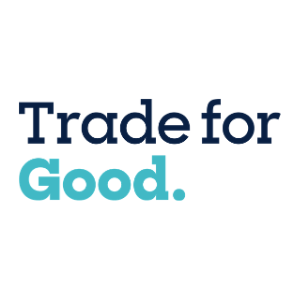Coping with cancer’s challenges. And how it’s done.
“Live your most authentic life according to your values and, if you can, do what you have always wanted to do. Don’t live with regrets – life is too short. I realise now, being an ill patient for over 30 years, that each day is so precious and even more so now since my cancer diagnosis. I want to live each day being mindful and experiencing all the joys life has to offer. Laugh and laugh hard. Dance like everyone is watching and learn not to care.” – Karen Humphries.
If they handed out medals based on pain and suffering, while maintaining a keen sense of optimism and hope, Karen would be a multiple Gold Medal winner. Aged 48, and from Sydney, NSW, at the writing of her story she has faced decades of physical hardship that’s almost unimaginable. She had a colostomy at 36 in 2011 due to Ehlers Danlos Syndrome – a rare genetic condition that surfaced when she was 23 and mainly affects the skin, bones, blood vessels and other organs and tissues.
“I was severely ill and unable to digest food so the colostomy bag was a lifesaver. Prior to being diagnosed with stage 2 gallbladder carcinoma I had pains in my right side which lasted several weeks. I visited my GP who thought it was my bowel/bladder playing up and gave me antibiotics.”
However, Karen and her husband decided the pain was abnormal and she was admitted to accident and emergency where a CT scan revealed issues with her gallbladder and other organs. So she was admitted and other tests were performed.
“I also had an intuition that something was not right for some time. I was actually meant to be going into hospital for treatment to save another organ so I didn’t lose my rectum. But on reflection it (the gallbladder cancer) was there but just not diagnosed yet. Liver tests showed elevations but doctors said I had non-alcoholic fatty liver.
“And there were other symptoms like chronic anaemia, abdominal, severe indigestion, itchy skin, CRP inflammation readings, rib and back pain, my stool changed colour and in 2017 had emesis (vomiting) over six months and could only consume soup and eggs. By the time my gallbladder carcinoma was discovered it had already travelled to my lymph nodes.”
Karen had her gallbladder removed in late September 2021, her GP then asked for the biopsies as she was concerned after reading the hospital’s discharge notes. On receiving the biopsy report, it confirmed that Karen had gallbladder cancer. Within a week, Karen had had emergency surgery for a two-part liver resection, her lymph nodes and appendix removed.
The biopsies from this surgery revealed that her cancer had spread to the lymph nodes. She then began six months of Xeloda chemotherapy and at the time of writing, she’s on her fourth cycle. Her father has had bowel cancer so he offered her advice and support about what to expect from the chemo treatments. Karen says her family and friends were in shock.
“You’re of similar age and cancer doesn’t normally hit young people until they are in their 60s or 70s, or that’s what people think. It has been an eye opener for many people around me who now know cancer doesn’t discriminate. Also, I think they feel like I have been dealt some awful cards in my lifetime. However, they are proud of how I’m dealing with this so far.”
Karen says she found Pancare by chance and it has been a game changer, sparking her own initiatives to increase awareness of gallbladder and biliary cancer, even creating a Facebook page to share it with others.
“I was trying to find information on gallbladder cancer when I came across Pancare’s Facebook and website and was surprised by what the foundation had to offer. I will be attending the support groups, and the call to the cancer nurse was so vital in helping me understand what I was going through. I had been too frightened to ask questions as the survival rate statistics are scary. But she told me about them all and that helped me so much.
“I have become an advocate of gallbladder cancer awareness now and would love to see a more proactive approach taken by healthcare professionals to become better educated, to look at the bigger picture of the whole gut and not just use endoscopes – look everywhere in the digestive system. I am still in the fishbowl journey of cancer as I’m undergoing chemo but my best advice would be, when you’re ready (as it can take some time to come out of the shock) to find the right support group and mental health professional. And ask your doctors questions.”
Karen’s final words are something we can all relate to, in sickness and health.
“We never know what will happen to us in our lifetime. Building up resilience skills, both mentally and physically, in your wellbeing bank is a must, especially doing so in calmer and happier times. I have been doing self-development and building those skills for 30 years. I have done a lot of work on myself because I will always be a patient with my rare genetic condition and, now, a rare cancer. I have to empower myself to be a better patient. Working with a qualified mental health professional who is trained in cancer or chronic illness is essential.
“Also, trying out different support groups is great too … find your tribe. Some might not be suitable and others a perfect fit. Accepting help is essential to getting through each day, but take one day at a time. Keep exercising because you’ll want to be fit to live your best life and do whatever you want regardless of your initial diagnosis.”

